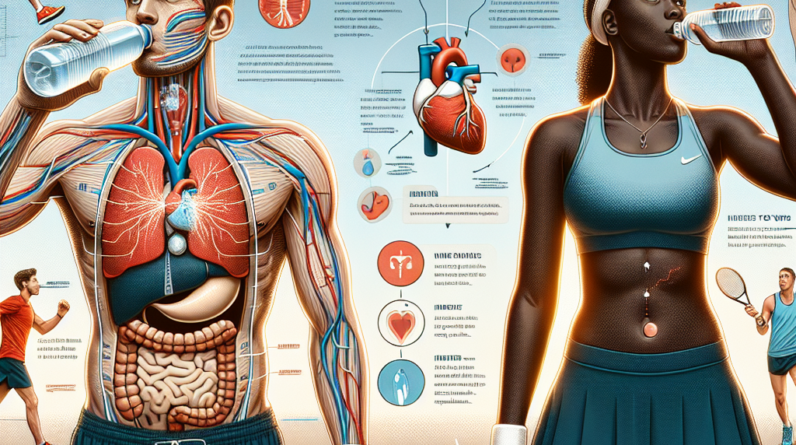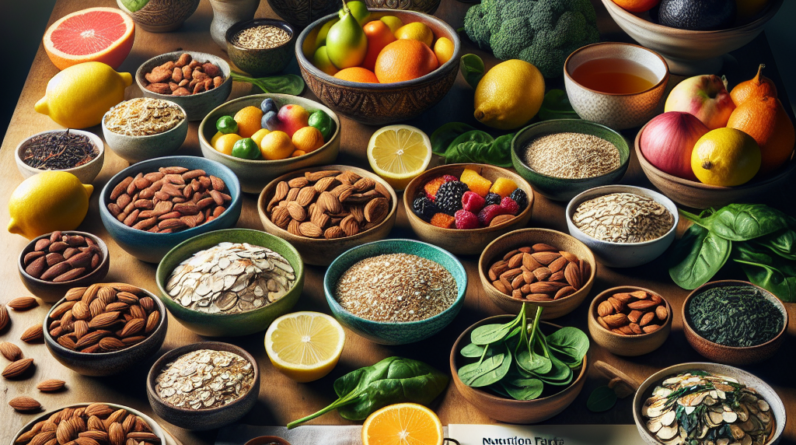
Understanding the Role of Water in Athletic Performance
Why Water Is Essential
When I first got serious about my training, I didn’t think much about hydration. I mean, water is just water, right? But I quickly learned that hydration is key to optimizing performance. Water makes up a massive chunk of our body – about 60%! It’s crucial for regulating our body temperature, lubricating our joints, and even transporting nutrients. Without it, we’re basically running on empty.
Get a Huge Discount and Bonus! Try for 90 Days Risk Free
Imagine trying to run a marathon without plenty of water. It’s like trying to drive a car without gas! You might get a few miles in, but eventually, you’ll stall. Staying hydrated ensures that your muscles and organs function properly so that you won’t hit that dreaded wall during your workouts.
Think of hydration as your secret weapon; it keeps your energy levels up, your mind sharp, and your body performing at its best. You wouldn’t head into a game without preparing, so why would hydration be any different?
Signs of Dehydration
Recognizing when you’re not drinking enough water can be a game changer. For me, it often started with a headache or feeling fatigued even after a good night’s sleep. Little did I know, I was already in the early stages of dehydration. Symptoms can range from dry mouth and crankiness to dark urine. Seriously, it’s wild how much our bodies signal us!
One personal experience that stands out was during a summer soccer league game. I underestimated how hot it was and ended up feeling dizzy on the field. After sipping on some water, I perked right back up, and it hit me just how critical it is to listen to those signals.
So, keep an eye out for those signs. If you feel off, it might just be that your body is crying out for hydration. Don’t ignore it; it could make all the difference!
How Much Water Do You Really Need?
Now, this is where things can get a bit tricky. The amount of water each athlete needs can vary widely based on factors like age, weight, and the intensity of your activity. Personally, I’ve found that sipping water regularly throughout the day works better than chugging a ton of it all at once. Think of it as keeping a steady flow of fuel.
A good rule of thumb? Aim for about half your body weight in ounces daily, plus more for every hour of intense activity. It sounds like a lot, but trust me, once you make it a habit, it becomes second nature. I’ve even set reminders on my phone to sip water at intervals!
Listen to your body; if you’re feeling thirsty, that’s your cue. The more you tune in, the easier it gets to stay in that hydrated sweet spot.
Get a Huge Discount and Bonus! Try for 90 Days Risk Free
The Right Type of Beverages
Water vs. Sports Drinks
There’s always debate about water versus sports drinks for hydration, especially during high-intensity sports. I usually stick to good ol’ water for my workouts under an hour. But, if I’m training longer or sweating a lot, a sports drink can offer those extra electrolytes I need to replenish after a workout. They can be lifesavers!
Once, during a hot summer race, I relied on the provided sports drinks. I ended up feeling revitalized because they contained sodium and potassium, making a huge difference in my performance. It’s all about knowing what your body needs in different situations.
However, it’s vital to check the sugar content in those drinks. Too much sugar can lead to an energy crash, which totally defeats the purpose of hydrating right. Stick to options that balance electrolytes without packing in excess sugars.
Flavoring Your Water
If you’re like me and can sometimes find plain water boring, adding a splash of flavor helps! I love infusing my water with fresh fruits, herbs, or even a squeeze of lemon. It’s a fun way to make hydration a little more exciting. Plus, it also gives your body some extra vitamins!
Need a Serious Energy BOOST? Huge Discount Try for 90 Days Risk Free
Mixing up flavors keeps me motivated to drink more. Sometimes, I’ll create a whole routine around it – like prepping a batch of infused water on Sunday evenings so I’m ready for my busy week ahead. Being creative with your hydration can encourage you not to skip those sips throughout the day.
So, don’t shy away from making hydration enjoyable! Experiment with different combinations and discover what you enjoy sipping.
Caffeinated and Alcoholic Beverages
Now, I know it’s tempting to grab a coffee or enjoy a beer after a long workout, but you gotta be careful. Both caffeine and alcohol can contribute to dehydration. I used to think that my morning cup of coffee counted toward my daily water intake, but research suggests that it might actually dehydrate you instead.
When I’m enjoying a night out with friends, I make a point to drink water in between cocktails. This way, I’m helping my body recover better and still having a great time. You don’t have to ditch the fun forever; just be mindful about your choices.
Finding that balance is key. Enjoy your favorite drinks, but don’t forget to stay hydrated during and after. Your body will thank you later!
Hydration Strategies for Different Sports
Endurance Sports
As someone who loves a long run or bike ride, I’ve definitely learned the importance of hydrating before, during, and after these endurance activities. When I know I’ll be pushing the limits, I pre-hydrate – drinking plenty of water in the days leading up to a race keeps my hydration levels high.
During longer workouts, I swear by having a water bottle on hand or a hydration pack. I take frequent sips, even if I’m not feeling thirsty, just to stay ahead of dehydration. It’s all about being proactive – because once you’re thirsty during a race, it’s a little too late!
After the workout, I prioritize rehydration just as seriously, often using electrolyte drinks to recover from those long hours of physical exertion. Trust me; keeping your hydration game strong will make those tiring sessions much more enjoyable.
Good Health Solution is Easier Than Most People Think!
Take a Look for Yourself!
Team Sports
Playing on a soccer or basketball team comes with a shared responsibility to hydration. I’ve learned that coaches often stress the importance of staying hydrated before and during practice, and it’s so true. I started bringing my own water bottle to ensure I’m drinking enough throughout the game.
During breaks, we often gather around, refilling our bottles and lifting them for a quick cheers! It’s a fun way to remember the importance of hydration while building camaraderie among teammates. Plus, keeping hydration on the team’s radar boosts everyone’s performance!
Always remind your teammates to hydrate. Sometimes, it might save a teammate from overheating or cramping during a crucial game!
Strength Training
I’ve experienced firsthand that hydration plays a huge role in strength training. When I’m lifting weights, staying hydrated helps keep my muscles lubricated and functioning efficiently. I’ve noticed that on days I forget to drink enough, my lifts feel heavier and my muscles fatigue quicker.
Making it a habit to have water nearby while I train has been game-changing. I take breaks, sip some water, and then get back to it. Staying hydrated helps me push through that last set when it gets tough. It’s all about keeping the engine running smoothly!
Additionally, post-workout hydration helps with recovery, reducing soreness and helping my muscles rebuild. I often mix protein shakes with water or coconut water for that extra boost!
Recognizing Individual Differences
Personal Hydration Needs
One of the biggest lessons I’ve learned is that everyone’s hydration needs are different. What works for one athlete might not work for another. I’ve seen fellow runners who thrive on lower amounts, while I feel better with more consistent hydration. Experimenting and finding what suits you best is crucial.
A great way to assess your hydration is by monitoring your urine color. If it’s a light, pale yellow, you’re likely well-hydrated! Darker shades can be a warning sign that you need more fluids. Pay attention to how you feel and adjust accordingly.
Tracking my hydration through a journal helped me figure out what worked best. Over the weeks, I could see patterns emerge – this way made staying hydrated part of my routine rather than a chore.
Environmental Factors
Humidity and temperature can also impact how much water I need to drink. When I trained during those sweltering summer days, I had to crank up my hydration levels significantly. I learned to always check the forecast before heading out for a workout!
In cold weather, it’s easy to forget about hydration, but my body still needs water. I’ve learned that I can get dehydrated during winter sports too. So, I try to keep a water bottle with me, no matter what the season.
Be aware of how your surroundings influence your hydration needs. Staying on top of this means I can continue to chase my athletic goals!
Adjusting for Intensity
The intensity of the workout matters more than I initially thought. On days when I’m pushing my limits, my body demands more water. During tough training sessions, I’ve found that taking small sips frequently helps me maintain my performance levels.
After those high-intensity workouts, I’ll often have a sports drink to help restore lost electrolytes. Staying mindful of the intensity not only boosts my performance but also supports proper recovery. It’s all about finding the right balance!
I also encourage you to learn how different intensities impact your hydration needs. Finding your sweet spot will help you crush your athletic endeavors and feel great doing it!
Conclusion
As you can see, proper hydration is vital for anyone looking to improve their athletic performance. From understanding how water affects our bodies to recognizing our individual hydration needs, it’s clear that staying hydrated plays a major role in our success as athletes. Make hydration a part of your daily routine, and you’ll notice a world of difference in how you feel during your workouts and competitions!
FAQs
1. What are the main signs of dehydration?
The main signs of dehydration include feeling thirsty, having a dry mouth, dark urine, fatigue, and dizziness. If you notice these symptoms, it’s essential to up your water intake.
2. How much water should an athlete drink daily?
As a general guideline, aim to drink about half your body weight in ounces per day. More hydration may be required during intense training or hot weather.
3. Are sports drinks better than water?
Sports drinks can be beneficial for prolonged, intense activity, as they replenish electrolytes. For shorter workouts, stick with plain water!
4. Can I rely on caffeine for hydration?
I would caution against relying on caffeine for hydration. While it can hydrate you slightly, it may also have diuretic effects, leading to increased urination.
5. How does the weather affect hydration needs?
Hot and humid weather increases your hydration needs significantly. Similarly, cold weather can make dehydration easy to overlook, so always keep a water bottle handy regardless of the season!







